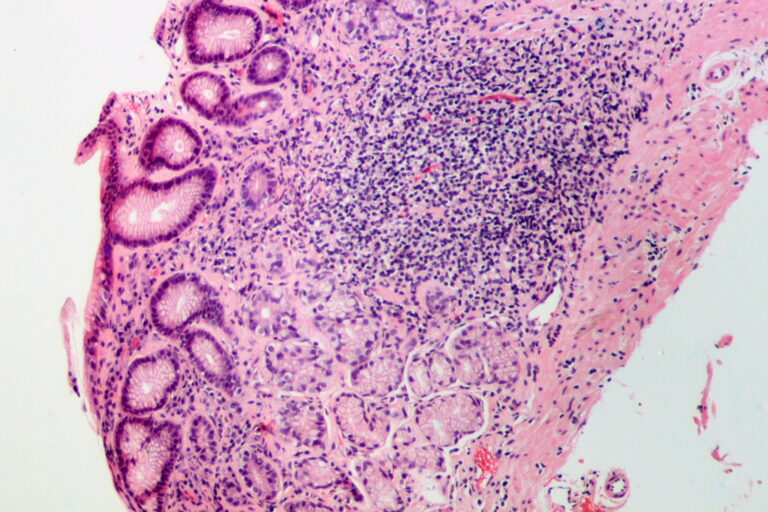H. pylori Diet: A Delightful Dive into a Tummy-Friendly Diet
Helicobacter pylori (H. pylori) is a bacterium that resides in the stomach lining, often causing gastrointestinal issues such as gastritis and peptic ulcers. While medical treatment is paramount in managing H. pylori infections, adopting a specific diet and making lifestyle modifications can significantly support the healing process and prevent complications. In this comprehensive guide, we will explore the H. pylori diet, encompassing foods to eat, gastritis prevention, what to avoid during treatment, a detailed 3-day diet plan, ways to relieve side effects, dietary tips, and understanding what not to do.
The Scientific Background of H. pylori Infection
Understanding the scientific aspects of H. pylori infection can provide valuable insights into why certain dietary choices are recommended. H. pylori is a resilient bacterium that colonizes the stomach lining and can lead to chronic gastritis, peptic ulcers, and, in some cases, stomach cancer. The bacteria can survive in the acidic environment of the stomach by producing an enzyme called urease, which neutralizes stomach acid.
H. pylori is primarily transmitted through oral-oral or fecal-oral routes, and infection rates are higher in developing countries. The infection is often asymptomatic, but when symptoms occur, they may include abdominal pain, bloating, nausea, and in severe cases, gastrointestinal bleeding.
Medical treatment typically involves a combination of antibiotics and acid-suppressing medications to eradicate the bacteria and promote healing of the stomach lining. However, lifestyle and dietary modifications can play a supportive role in managing symptoms and preventing recurrences.
Foods to Eat:
- Probiotic-rich Foods:
Incorporate yogurt, kefir, sauerkraut, and kimchi to restore gut flora. - High-Fiber Foods:
Include whole grains, fruits, vegetables, and legumes for improved digestion. - Lean Proteins:
Opt for poultry, fish, tofu, and legumes for easier digestion. - Antioxidant-Rich Foods:
Berries, citrus fruits, spinach, and broccoli boost antioxidants. - Green Tea:
Green tea contains compounds with potential antimicrobial properties.
Foods to Help Prevent Gastritis:
- Manuka Honey:
Known for antibacterial properties, use it as a natural sweetener. - Garlic:
Incorporate raw or lightly cooked garlic for its antimicrobial benefits. - Cranberry Juice:
Consider unsweetened, pure cranberry juice for potential benefits. - Broccoli Sprouts:
Containing sulforaphane, add them to salads or smoothies. - Ginger:
Possessing anti-inflammatory and antibacterial properties, include fresh ginger in teas or meals.
What to Avoid Eating During Treatment:
- Spicy Foods:
Exacerbate stomach irritation; avoid hot peppers and chili. - Acidic Foods:
Irritate the stomach lining; limit citrus fruits and tomatoes. - Processed and Fatty Foods:
Challenge digestion; minimize fried foods and processed snacks. - Caffeine and Alcohol:
Irritate the stomach; reduce or eliminate during treatment. - Dairy Products:
Some may be lactose intolerant; consider limiting or avoiding.
3-Day H. pylori Diet Plan:
Day 1:
- Breakfast: Greek yogurt with berries and honey.
- Snack: Apple slices with almond butter.
- Lunch: Grilled chicken salad with mixed greens.
- Snack: Carrot sticks with hummus.
- Dinner: Baked salmon with quinoa and broccoli.
Day 2:
- Breakfast: Oatmeal with bananas and chia seeds.
- Snack: Orange segments with walnuts.
- Lunch: Lentil soup with whole-grain crackers.
- Snack: Greek yogurt with granola.
- Dinner: Stir-fried tofu with brown rice and vegetables.
Day 3:
- Breakfast: Whole-grain toast with avocado and poached eggs.
- Snack: Mixed berries with cottage cheese.
- Lunch: Turkey and vegetable wrap with whole-grain tortilla.
- Snack: Celery sticks with peanut butter.
- Dinner: Quinoa-stuffed bell peppers with a side salad.
How to Relieve Side Effects from Treatment:
- Stay Hydrated:
Flush out toxins by drinking plenty of water. - Small, Frequent Meals:
Ease digestion with smaller, more frequent meals. - Ginger Tea:
Soothe nausea and digestive issues with ginger tea. - Probiotic Supplements:
Enhance gut bacteria balance with supplements. - Avoid Trigger Foods:
Identify and avoid foods exacerbating side effects.
H. pylori Diet Tips:
- Listen to Your Body:
Pay attention to how your body responds to different foods. - Cooked vs. Raw:
Choose gentler cooked options, especially for vegetables. - Gradual Changes:
Implement dietary changes gradually for better adaptation. - Consult a Nutritionist:
Seek professional advice for personalized dietary plans. - Monitor Symptoms:
Keep a journal to track symptoms and identify patterns.
The Impact of Stress on H. pylori Infection:
- Bi-Directional Relationship:
Stress and H. pylori have a mutual impact on each other. - Cortisol and Stomach Acid Production:
Stress triggers cortisol release, increasing stomach acid. - Behavioral Changes:
Stress can lead to unhealthy behaviors affecting digestion.
Cooking Methods and their Influence on Digestion:
- Steaming and Boiling:
Opt for gentler cooking methods to preserve nutrients. - Avoid Heavy Frying:
Choose lighter cooking methods to reduce excessive fats. - Herb and Spice Infusions:
Enhance flavor without excess salt or heavy sauces. - Chewing and Digestion:
Thorough chewing aids digestion and nutrient absorption.
Practical Meal Planning for H. pylori Management:
- Balanced Meals:
Structure meals with a balance of carbs, proteins, and fats. - Frequent Snacking:
Include nutritious snacks for a steady nutrient supply. - Cooked vs. Raw Foods:
Experiment with the balance based on personal tolerance. - Food Diary:
Keep a food diary to track meals, symptoms, and well-being.
The Importance of Regular Follow-up:
- Monitoring Symptoms:
Regular follow-ups help monitor symptoms and treatment efficacy. - Diagnostic Testing:
Periodic tests like urea breath tests evaluate treatment success. - Nutritional Assessments:
Ensure nutritional needs are met through periodic assessments.
Lifestyle Modifications for H. pylori Management
- Stress Management:
Chronic stress has been linked to various digestive issues, including exacerbation of H. pylori-related symptoms. Incorporate stress-reducing practices into your daily routine, such as deep breathing exercises, meditation, yoga, or regular physical activity. Managing stress not only benefits your mental well-being but can also positively impact your digestive health. - Smoking Cessation:
Smoking is associated with increased stomach acid production and delayed healing of the stomach lining. Quitting smoking is essential for overall health and can contribute to the effectiveness of H. pylori treatment. - Meal Timing:
Pay attention to meal timing. Avoid eating large meals late at night, as lying down shortly after eating can contribute to acid reflux and discomfort. Aim for smaller, more frequent meals throughout the day to support optimal digestion.
The Impact of Stress on H. pylori Infection
- Bi-Directional Relationship:
The relationship between stress and H. pylori infection is bi-directional. Stress can contribute to the development of gastrointestinal issues, and in turn, the presence of H. pylori in the stomach can lead to increased stress on the digestive system. - Cortisol and Stomach Acid Production:
Stress triggers the release of cortisol, a hormone that can increase stomach acid production. Elevated stomach acid levels may exacerbate H. pylori-related symptoms and hinder the healing process. Implement stress management techniques to mitigate these effects. - Behavioral Changes:
Stress can also lead to changes in behavior, such as poor dietary choices, smoking, or excessive alcohol consumption. Addressing stress not only supports overall mental health but also encourages healthier lifestyle choices that complement H. pylori management.
Cooking Methods and their Influence on Digestion
- Steaming and Boiling:
Opt for gentler cooking methods such as steaming or boiling. These methods preserve the nutritional content of foods while making them easier to digest. Steamed vegetables, boiled grains, and poached proteins can be gentle on the stomach. - Avoid Heavy Frying:
Heavy frying can introduce excess fats and oils, which may be challenging to digest, especially for individuals with H. pylori infection. Choose lighter cooking methods like sautéing with minimal oil or using non-stick cooking sprays. - Herb and Spice Infusions:
Infusing foods with herbs and spices can enhance flavor without relying on excessive salt, sugar, or heavy sauces. Additionally, certain herbs and spices, like ginger or fennel, may have digestive benefits. - Chewing and Digestion:
The process of chewing is the first step in digestion. Ensure that you chew your food thoroughly to aid in the breakdown of nutrients. This can be particularly important for individuals with H. pylori, as well-chewed food is easier for the stomach to process.
Practical Meal Planning for H. pylori Management
- Balanced Meals:
Structure meals to include a balance of carbohydrates, proteins, and healthy fats. This helps maintain steady energy levels and supports overall nutritional needs. - Frequent Snacking:
If large meals are challenging to tolerate, consider incorporating nutritious snacks between meals. This can help provide a steady supply of nutrients without overwhelming the digestive system. - Cooked vs. Raw Foods:
Experiment with the balance of cooked and raw foods in your diet. While some individuals may find relief from predominantly cooked foods, others may tolerate a mix of both. Listen to your body and adjust accordingly. - Food Diary:
Keep a food diary to track your meals, symptoms, and overall well-being. This can help identify patterns and specific triggers, enabling you to make informed adjustments to your diet.
Additional Dietary Tips
- Hydration:
Adequate hydration is vital for overall health and can also aid in digestion. Drinking water between meals helps maintain hydration levels without diluting stomach acid during digestion. - Herbal Teas:
Herbal teas, such as chamomile or peppermint, may have soothing effects on the digestive system. Enjoying a warm cup of these teas between meals can provide comfort and promote relaxation. - Omega-3 Fatty Acids:
Include sources of omega-3 fatty acids, such as fatty fish (salmon, mackerel) and flaxseeds, in your diet. Omega-3s have anti-inflammatory properties that may contribute to reducing inflammation associated with H. pylori infection. - Limit Sugar and Processed Foods:
Excessive sugar and processed foods can contribute to inflammation and disrupt the balance of gut bacteria. Limiting these in your diet supports overall digestive health. - Herbal Supplements:
Some herbal supplements, like mastic gum and deglycyrrhizinated licorice (DGL), have been studied for their potential benefits in managing H. pylori infection. However, it’s essential to consult with a healthcare professional before adding supplements to your regimen.
Natural Remedies for H. pylori
While dietary changes play a crucial role, certain natural remedies may complement conventional treatment. It’s essential to approach these remedies with caution and consult with a healthcare provider before incorporating them into your routine:
- Probiotic Supplements:
In addition to probiotic-rich foods, consider taking probiotic supplements. These supplements can help restore the balance of gut bacteria and support overall digestive health. - Cabbage Juice:
Some studies suggest that fresh cabbage juice may have antibacterial properties against H. pylori. Drinking a small amount of fresh cabbage juice daily could be considered, but more research is needed to confirm its efficacy. - Bismuth Supplements:
Bismuth compounds, such as bismuth subsalicylate, have antimicrobial properties and may inhibit the growth of H. pylori. However, their use should be supervised by a healthcare professional due to potential side effects. - Vitamin C:
Vitamin C (ascorbic acid) may help in the management of H. pylori infection. Foods rich in vitamin C, such as citrus fruits and bell peppers, can be included in your diet.
Long-Term Dietary Considerations
Beyond the initial treatment phase, maintaining a healthy diet is crucial for preventing H. pylori recurrence and promoting overall well-being:
- Regular Check-ups:
Schedule regular follow-up appointments with your healthcare provider to monitor your condition and adjust treatment or dietary recommendations as needed. - Balanced Nutrition:
Continue to prioritize a balanced diet rich in fruits, vegetables, whole grains, and lean proteins. This helps support your immune system and maintains the health of your digestive tract. - Moderation:
While it’s essential to avoid trigger foods during the acute phase of infection, in the long term, moderation is key. Gradually reintroduce foods in moderation to assess your tolerance. - Mindful Eating:
Adopt mindful eating practices, which involve paying attention to hunger and fullness cues, chewing food thoroughly, and eating in a relaxed environment. This can aid in optimal digestion. - Lifestyle Factors:
Consider other lifestyle factors that impact digestive health, such as stress management, regular exercise, and sufficient sleep. A holistic approach to well-being contributes to the prevention of digestive issues.
The Importance of Regular Follow-up
- Monitoring Symptoms:
Regular follow-up with your healthcare provider is crucial for monitoring symptoms, assessing treatment efficacy, and making any necessary adjustments to your care plan. - Diagnostic Testing:
Periodic diagnostic testing, such as urea breath tests or endoscopies, may be recommended to evaluate the success of H. pylori eradication and the overall health of the digestive tract. - Nutritional Assessments:
Consider periodic nutritional assessments, especially if dietary restrictions have been in place for an extended period. This ensures that your body receives adequate nutrients for optimal functioning.
Conclusion
In conclusion, a holistic approach to managing H. pylori infection involves not only dietary modifications but also lifestyle adjustments, stress management, and careful consideration of cooking methods. Understanding the bi-directional relationship between stress and H. pylori, making mindful choices in meal planning, and regularly monitoring symptoms are integral components of a comprehensive strategy for long-term digestive health.
Remember, individual responses to dietary and lifestyle changes vary, and it’s crucial to work collaboratively with healthcare professionals to tailor the approach to your specific needs. By embracing a multifaceted approach to H. pylori management, you empower yourself to make informed choices that contribute to your overall well-being and digestive health.


